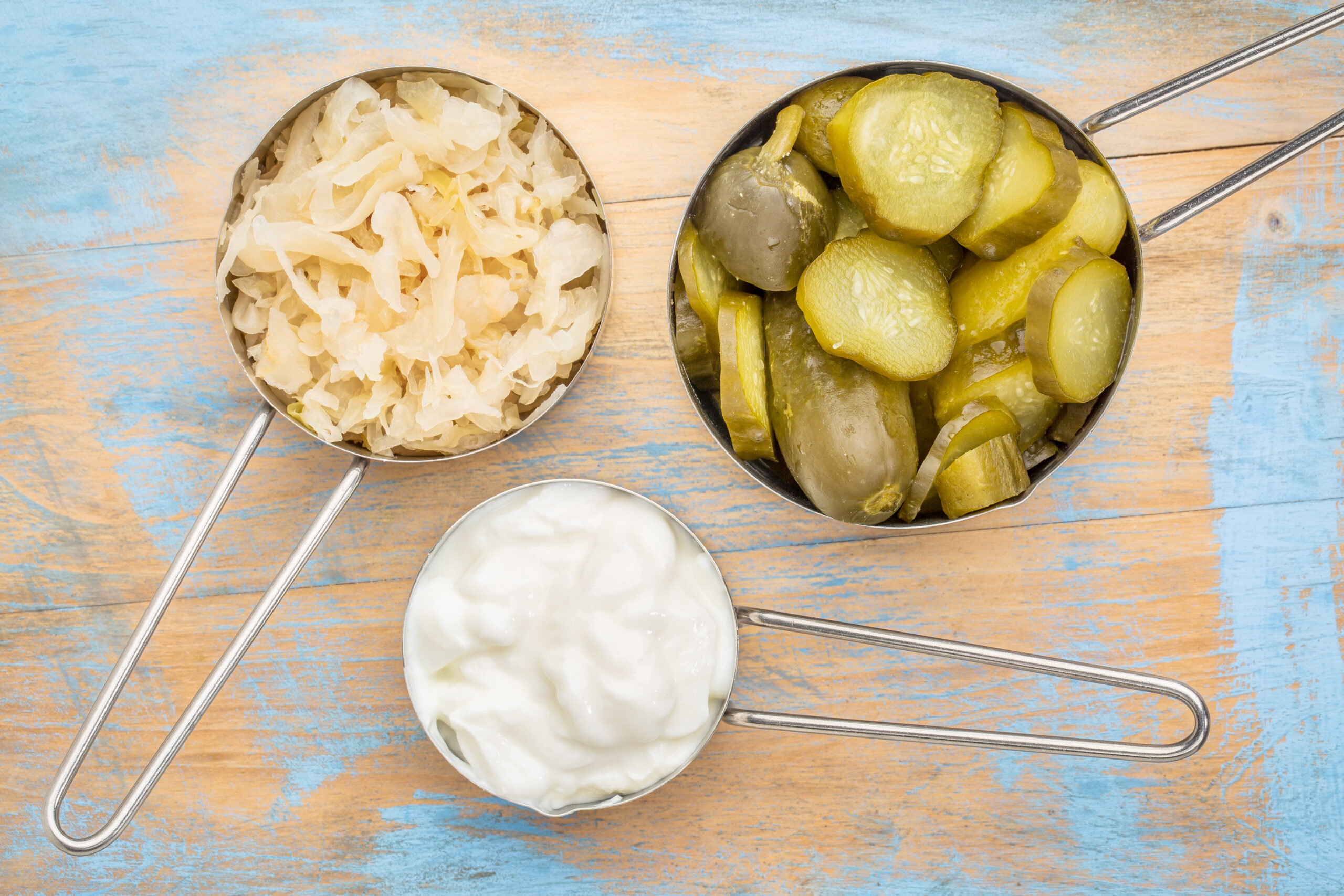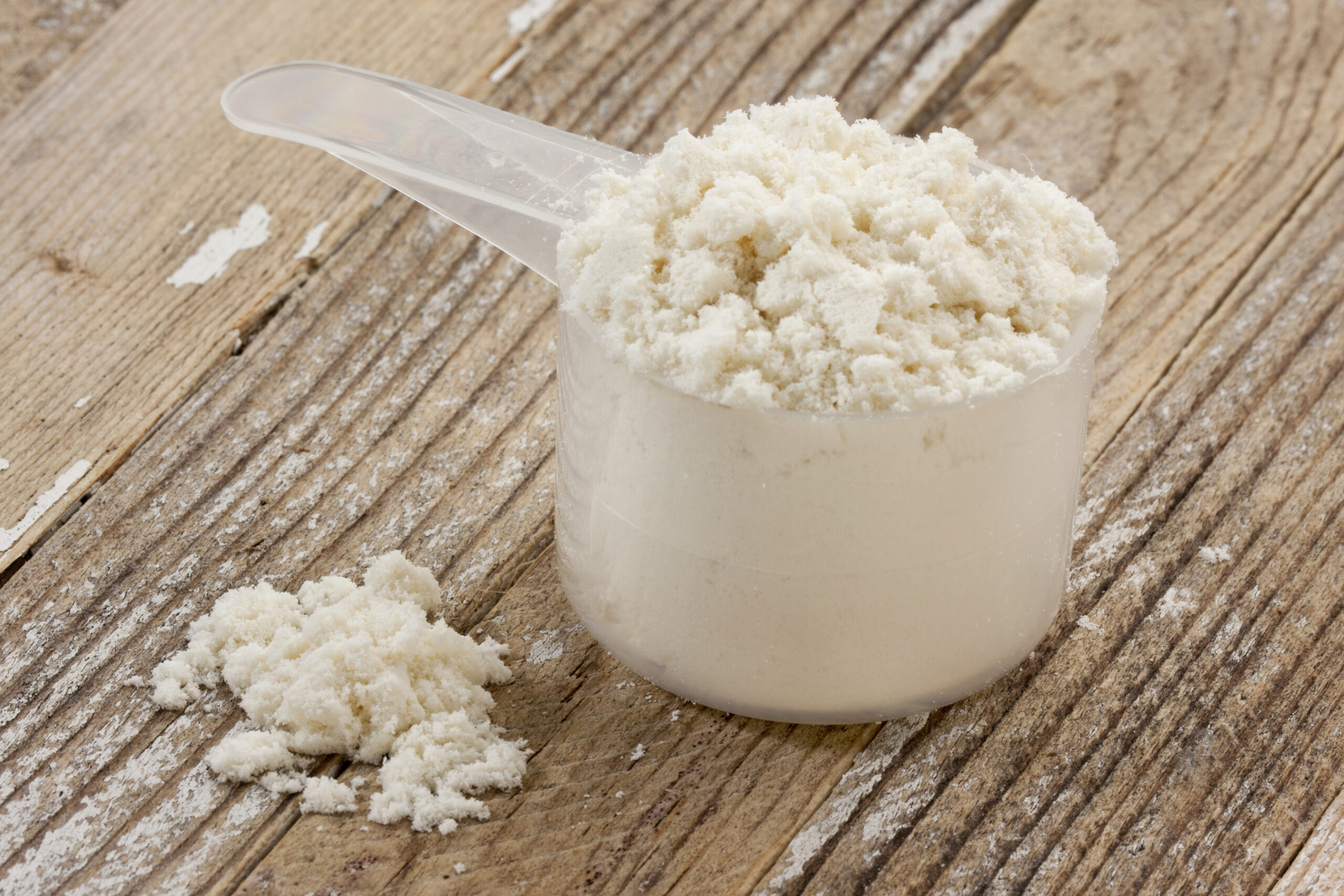We’ve spent the better part of a century trying to annihilate bacteria. From antibacterial soaps to harsh cleansers, and let’s not forget the knee-jerk antibiotic prescriptions we receive for every sniffle. Yes, we’ve been trained to treat microbes like the enemy, the ultimate bad guys, tiny armies plotting to invade our bodies and destroy our health.
But the truth is more nuanced than that.
As anyone who has recently watched a Yakult advert knows, some bacteria is good for us. In fact, they are vital to our health. They run the show behind the scenes. They’re like an invisible workforce supporting gut health, modulating immunity, calming inflammation, regulating mood, and yes, even keeping our skin clear and calm.
These unsung heroes are probiotics, and as you’re about to read, they’re not just about digestion anymore!
What Probiotics Actually Are (and Aren’t)
Probiotics are live microorganisms (mostly bacteria and some yeast) that offer health benefits when consumed in the right amounts.
But why do we need them?
Your body is home to trillions of microbes, especially in your gut. Think of yourself less as a single organism and more as an ecosystem. Your microbiome is a vast, dynamic mix of bacteria, fungi, and viruses, all of which are deeply involved in almost every system of your body, from digestion to immunity to brain chemistry.
That’s why it is healthy to top up on good bacteria by regularly consuming probiotics, of which, fermented foods are a terrific source!
But it’s also worth knowing that consuming probiotics alone sometimes isn’t enough. You also need to consider prebiotics, which are not to be confused with postbiotics!
Confused already?
Don’t worry, here are some helpful definitions.
- Probiotics = live, beneficial microorganisms.
- Prebiotics = the fibre-rich food those microbes love to eat.
- Postbiotics = the beneficial compounds those bacteria produce once they’re happily fed.
Why Gut Health Matters (Way More Than You Think)
Let’s start with the basics of gut health.
Your gut isn’t just a digestive tube, it’s a command centre. Inside it lives a bustling metropolis of microbes, working around the clock to break down food, absorb nutrients, regulate hormones, and keep your immune system sharp. When these microbes are diverse and well-balanced, everything runs more smoothly.
But when the ecosystem is off (thanks to antibiotics, chronic stress, ultra-processed foods, or simply not enough fibre) the effects ripple far beyond digestion. You might feel constantly bloated, tired, foggy, or just “off.” Your immune system can become overactive. Your skin might turn temperamental. And you’re more likely to experience the kind of chronic, low-grade inflammation that underpins everything from breakouts to burnout.
Probiotics help by replenishing beneficial bacteria and supporting the integrity of your gut lining. A healthy gut means food gets broken down and absorbed properly, rather than sitting around and triggering discomfort. It also helps regulate your bowel movements, which while not the sexiest topic, is vital for feeling light and energised.
Beyond digestion, your gut is where around 70% of your immune system lives. When that environment is healthy, your immune response is calm and precise. When it’s not, your body can start reacting to things it shouldn’t. A well-fed gut also strengthens the barrier between your digestive tract and bloodstream, keeping inflammatory toxins out of circulation.
In short: support your gut, and you support everything else.
How Gut Health Shows Up On Your Skin
Ever notice how your skin flares up after a round of antibiotics, or during periods of intense stress?
That’s not coincidence—it’s biology!
Your gut and skin are in constant conversation through what’s known as the gut–skin axis, a communication loop powered by immune signalling, hormones, and inflammation.
When your gut flora is balanced, your skin tends to be calmer, clearer, and more resilient. That’s because a healthy gut helps regulate systemic inflammation, supports proper immune responses, and maintains the integrity of the intestinal lining (keeping inflammatory compounds where they belong).
But when that internal ecosystem is out of whack (thanks to poor diet, chronic stress, lack of sleep, or medication), your skin often pays the price.
When the gut barrier becomes compromised, toxins and undigested particles can leak into the bloodstream which is a condition often referred to as “leaky gut.” This triggers the immune system to sound the alarm, ramping up inflammation throughout the body, including the skin. Add in stress-induced cortisol spikes (which further disrupt the microbiome) and it becomes the perfect storm for breakouts, sensitivity, and flare-ups.
So if your skin is acting out, your gut might be trying to tell you something. And probiotics may be part of the answer by helping restore microbial balance, reduce inflammation, and strengthen that all-important gut barrier from within.
Which Probiotics Help Fight Inflammation?
Inflammation isn’t inherently bad. In fact, it’s a normal part of healing and immune defence. The problem is when it becomes chronic and low-grade. That’s when it’s quietly simmering beneath the surface and contributing to everything from fatigue and skin flare-ups to autoimmune conditions and premature ageing.
This is where probiotics come in.
Certain strains of probiotics have been shown to help calm that internal fire. For example, Lactobacillus rhamnosus and Bifidobacterium lactis have been studied for their ability to reduce markers of systemic inflammation, such as C-reactive protein (CRP) and pro-inflammatory cytokines. They do this by strengthening the gut lining, which as mentioned earlier, acts like a filter, letting nutrients in and keeping inflammatory substances out.
These beneficial bacteria also produce compounds like short-chain fatty acids (especially butyrate), which help regulate immune responses and promote a healthy inflammatory balance—not too reactive, not too passive. It’s Goldilocks immunity, and it all starts in the gut.
But not all probiotic strains have this effect, which is why quality matters more than quantity. You want clinically researched strains, not just vague promises on a supplement label. If you’re buying supplements, look for formulas that include Lactobacillus and Bifidobacterium species, ideally with clearly listed strain codes (like L. rhamnosus GG or B. lactis HN019) and research-backed CFU counts. But the best approach is to just eat a diet rich in fermented foods, more on that later!
The Other Benefits
But the benefits of a health guy don’t stop there – here’s where things get really interesting!
Roughly 90% of your body’s serotonin (the “feel-good” neurotransmitter) is produced in your gut. So, it’s no surprise that your microbiome is deeply involved in mood regulation, stress response, and emotional resilience.
When your gut is balanced, your stress response is more balanced too which means lower cortisol levels, better sleep, and improved hormonal balance.
So yes, a healthy gut can actually help you feel less anxious!
Where to Get Probiotics (Without Going Broke or Crazy)
While you can’t guarantee that specific clinical strains will be present in standard fermented foods, a diet rich in probiotic and prebiotic foods is still the best way to nurture the right environment for these bacteria to thrive.
Some of the best options:
- Natural yoghurt (with live cultures) – Contains strains of Lactobacillus and Bifidobacterium, often in lower amounts but still beneficial. Always look for “live and active cultures” on the label.
- Kefir – A fermented dairy drink that’s rich in multiple probiotic strains, including L. rhamnosus and other inflammation-supportive species.
- Sauerkraut (raw/unpasteurised) – Delivers a spectrum of Lactobacillus strains that can help modulate inflammation and support immune function.
- Kimchi – Spicy, fermented vegetables that contain Lactobacillus plantarum and other species known for their anti-inflammatory and antioxidant effects.
- Miso – A fermented soybean paste that supports gut diversity and has been linked to reduced inflammation, especially in traditional Japanese diets.
- Prebiotic-rich foods – Garlic, onions, leeks, asparagus, bananas, oats, and Jerusalem artichokes feed your existing gut bacteria helping them produce inflammation-calming compounds like butyrate.
Of course, if supplements are the only realistic way you’ll get enough probiotics, then keep this in mind:
- Look for multi-strain formulas with species like Lactobacillus and Bifidobacterium.
- Check that they’re shelf-stable or refrigerated with guaranteed potency until expiry.
- Avoid added sugars, fillers, or one-size-fits-all marketing fluff.
Habit Building Ideas: Making It Stick
If you find yourself struggling to remember to eat your probiotics, try weaving them into your existing diet and meal plans. Here’s how to bring probiotic-rich foods into different parts of your day without overthinking it:
Morning Microbes
Breakfast is prime time for adding a dollop of natural yoghurt or a splash of kefir to your smoothie, granola bowl, or fruit.
Not into eating early?
No problem, this is also a great time to drink a glass of kefir or take a probiotic supplement. Keep it next to your keys or kettle to pair it with an existing routine.
Midday Momentum
Lunch is an easy opportunity to sneak in fermented veg. Add a side of sauerkraut to a salad or grain bowl, tuck kimchi into a wrap or sandwich, or stir a bit of miso into a dressing or soup.
Evening Gut Support
A small spoonful of kimchi or sauerkraut before your meal acts as a digestive primer, especially helpful if it’s a heavier meal. You can also wind down with a mug of miso broth in place of your usual late-night snack. It’s soothing, savoury, and kind to your microbiome.
Snacking Smarter
Instead of reaching for something processed, keep small tubs of live-culture yoghurt in the fridge. Choose flavours you actually like and pair with a drizzle of honey. You can also snack on fermented carrots or pickled veg if you’re more of a crunch person.
Remove the Friction
If it’s not easy, it won’t happen. Keep miso paste in the fridge door. Pre-portion your yoghurt into jars. Buy fermented foods you’ll actually enjoy eating. Don’t try to overhaul your meals, instead, just upgrade the ones you already make.
No stress, no spreadsheets. Just smart habit design and a little microbiome love served up with whatever’s already on your plate.
Bacteria You Want in Your Corner
We’ve spent too long fearing bacteria, but the right bacteria can be some of our strongest allies. Probiotics aren’t an optional extra anymore; they’re part of the foundation for clearer skin, calmer moods, stronger immunity, and more vibrant health.
Start simple. One probiotic food a day. That’s it. See how your body responds. Because who would’ve guessed your skin’s glow-up might start with fermented cabbage?



